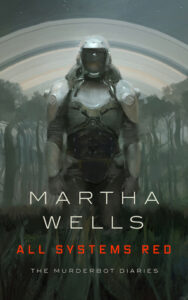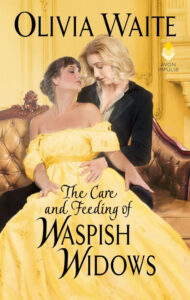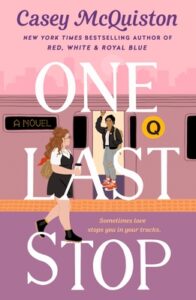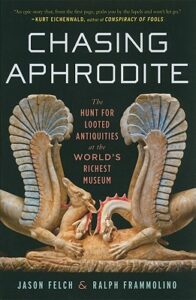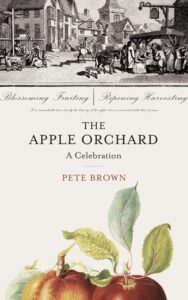 The Apple Orchard: The Story of Our Most English Fruit, Pete Brown
The Apple Orchard: The Story of Our Most English Fruit, Pete Brown
Broadly speaking, I really enjoyed this book. I came across it during my sudden random interest in histories about food, and though it’s also a history about cider and farming fruit, it ticks some of those boxes. It’s perhaps a little unusual in that the author can’t actually eat apples due to an allergy, so though he happily tastes cider (which doesn’t trigger the allergy), he’s otherwise stuck with other people describing the flavours (and textures, which always seem to be mentioned when people describe eating an apple).
There are… a few things that drove me absolutely nuts, though, so people would be forgiven for thinking that I didn’t actually like the book at all. The first thing is the firm location of King Arthur stories in England, as an English thing (just like apples are English, even when he’s talking about ones from South Wales). He’s done some half-assed research, like this:
The problem for Celts who want to claim the Arthurian myth as their own is that the details — such as we assume them now — don’t stack up. […] But Sarmartian warriors did ride horses, which were first domesticated on the Kazakh steppe, and they did wear chainmail and armour of overlapping scales. If we look at the customs and legends from the homeland of these armour-clad horse warriors, other familiar aspects leap out. […] There’s even a sacred golden cup in the Central Asian myths that sounds an awful lot like the Holy Grail.
Sounds very convincing, right? Except the man has done the very bare minimum of research, and quite possibly skimmed his theory off the blog of a random Arthurian enthusiast. It’s manifest bollocks from start to finish: he bases his theory about King Arthur being a Sarmartian on the grounds that we imagine King Arthur to have been armour-clad and riding a horse. But that’s just the version of King Arthur that we’re most familiar with, one that wasn’t really codified until much later. Early sources don’t mention anything about horses or chain mail or any of that stuff. If the sacred golden cup of Central Asian myths has any links to Arthurian literature, those links are no earlier in the Arthurian canon than Chrétien de Troyes, who made the first reference to a graal — which wasn’t even a cup.
Meaning, dear friends, that Pete Brown’s imagined parallels are largely way too late to have any bearing at all on whether Celts can claim the Arthurian myth as their own. We obviously can: the Welsh have the oldest sources.
It is a little worrying when I come across research as woeful as this in a book that involved allegedly years of research. Kind of throws the rest in a bad light — as does saying that CRISPR involves turning genes on and off, rather than full scale gene editing. CRISPR, if we can get past the problem of targeting it precisely, can do whatever gene editing we want. Plus, if you’re going to reference CRISPR, then maybe don’t just explain it like that with a throwaway footnote saying “No, me neither” — some of your readers do actually understand what CRISPR is, or are more than capable of looking it up.
(In case you want to edit that footnote, Mr Brown, here’s my suggested text: “CRISPR stands for Clustered Regularly Interspaced Short Palindromic Repeats. It’s a tool adapted from bacterial defences against invasive viruses which can be used for gene editing.” Fixed that for you; not much more difficult to understand than “No, me neither”, and much better at giving context if someone is interested.)
Also, it’s really, truly, incredibly, breathtakingly, moronically irresponsible to write that you are worried about eating “moth bits” in an apple if the tree was gene-edited to include a resistance gene from moths. It’s a piece of DNA; it doesn’t make bits of a moth, you idiot. It makes a protein which has nothing to do with any part of the moth’s lifecycle. If you took that gene and begged it, it could not become a moth, nor could you reconstruct moth DNA from it. If you really want to make some kind of comment about gene editing, I strongly recommend you go and spend at least one more year on your research, because you patently don’t understand a thing about it right now.
All of that said, I realise that makes it sound like I hated the book, but the parts where he sticks to what he knows and has experienced are very pleasant — he waxes poetical about the beauty of apples, the traditions surrounding them, and the events he’s taken part in that involve apples. He should have stuck to that, because overall it’s a really enjoyable read.
Rating: 4/5
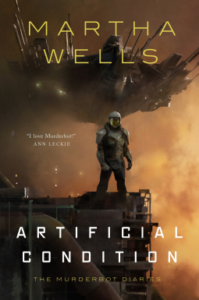 Artificial Condition, Martha Wells
Artificial Condition, Martha Wells
